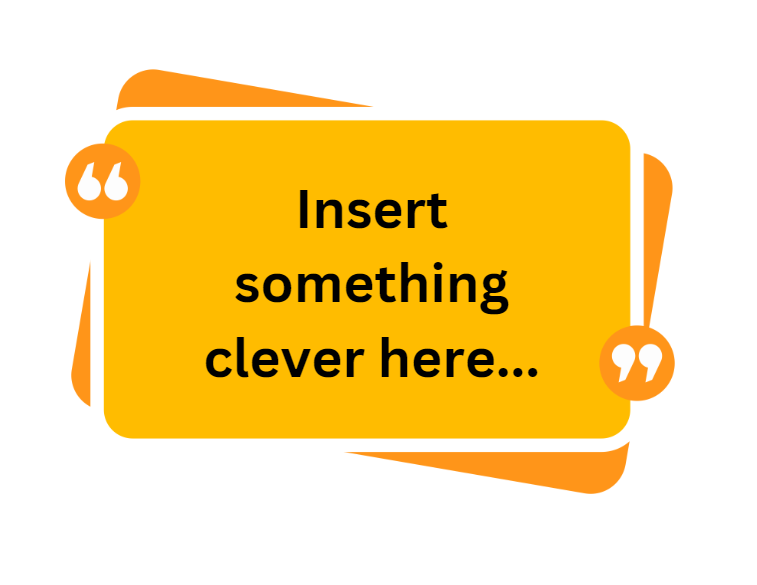NOTE: Go to my Medium.com page for more articles on productivity, technology and random musings.

“Daddy and his quotes!” My son laughed and kept laughing for a few minutes when I answered his question with a quote. The backdrop to his amusement is that I’d just published a book of quotes and short stories for Startup Founders.
While cracking himself up, he managed another question: “Why do you like quotes so much and what are they really anyway?!”
“Quotes are like cheat codes.”
“How?”
“Because there’s nothing new under the sun.” I replied, another quote, mind you, “That is to say, someone a long time ago distilled learned wisdom into a punchy line which, when used right, can help you skip a level or two on your way to boss level in the game of life.”
He stopped laughing and nodded. It made sense to his 10-year-old mind as he was just getting into computer games.
It was a moment. I’d have taken a lap of honour to the sound of applauding fathers if it wouldn’t have been self-defeating. Yes, the irony isn’t lost on me that I’m taking that lap here…
Anyway, my point is quotes are awesome. What’s there not to like? You can come across as wise when, frankly, you’re not. Better yet, you can actually take the opportunity to be wise if the quote is so spot on that it brushes away the fog of indecision, giving all involved the clarity desperately needed.
So, what does a good quote look like?
A good quote fits
Should be obvious, but I’ve read and been on the receiving end of quotes that have made me cock my head. Not because I was wondering about the deeper meaning within. No, it was more that I was trying not to think less of the espouser of such ill-timed drivel who seemed more concerned with coming across as smart than actually making sense.
Do not be this person. Otherwise, you’re in danger of getting a side-eye.
The best quotes are like Swiss army knives
Quotes are a poignant juxtaposition of human wordship and philosophy. A timely quote can leave a listener tingling in all sorts of places. I prefer the ones that offer practical and clear solutions, but it’s no less significant if said quote nudges you just enough to figure out the solution yourself.
Here’s an example of a brilliant, versatile and hardworking quote from Mo Gawdat:
“Sometimes we convince ourselves to hang onto the illusions and not to the truths.”
Deeeeep! You can apply this to almost anything you’re going through.
Don’t overuse them
I used to be guilty of this. As I’m sure many writers, especially on platforms such as Medium.com, are too. Use sparingly, and they’ll have the impact you desire. Otherwise, you risk sounding like a demented parrot.
EINSTEIN!
Don’t give an incorrect attribution. If you’re not sure who said what, admit it. Assigning the origin of a quote to an incorrect source will almost always detract and distract from the point you’re making.
Attributing to Einstein is a particularly common pothole in the speakers’ world. With the number of sayings that have been attributed to the man, one wonders whether he majored in religious studies, politics or philosophy before turning his enormous brain to physics.
Turns out the ‘who’ is just as important as the ‘what’
Ever been quoted Hitler as a solution to a particular wrinkle you’re facing? If so, you may want to check your friend’s closet for the nazi uniform he wears on the weekends.
The words may be apt, but I do find the source is often as significant. Also, that fact can flip-flop like seasonal footwear. Quoting Trump before he became president was kinda acceptable, especially in the business world. Not so much during his presidency, and should the man be successful in his bid at returning to the White House, then you know all the right-wingers and crazies will crawl out of their holes with megaphones blaring his words.
What are quotes best suited to? And where best to find them?
Not as inane a question as one might think. On first pass, the answer is: Every aspect of the human experience.
My book, Quotes and Anecdotes for Startup Founders is meant for people just getting into the business world. The quotes are meant to guide, encourage and inspire
And that’s just it. The best quotes guide, inspire and encourage us to be the best versions of ourselves. A couple of years ago, I came across this beaut:
“If your dreams do not scare you, they are not big enough.”
– Ellen Johnson Sirleaf, first elected female head of state in Africa
It reminded me not to be so conservative with my dreams.
Philosophers, politicians and writers are particularly great sources of quotes. They love the sound of their voices. I should know.
However, there are a few areas in which we don’t often hear loads of quotes. Not because they don’t exist but mainly because they haven’t, thankfully, entered common consciousness. Quotes advocating for porn, gun culture, free use of drugs, deportation, racist propaganda etc are thankfully less common.
So, do quotes always contribute positively?
Of course, an ill-suited quote is a bad one, as already mentioned, but another insidious aspect can come with quotes. They can induce lazy thinking. Sometimes, what was said years ago is no longer appropriate and should be left in the past (unless the whole point is to showcase how times have changed). Sometimes, the espoused solution works 9 times out of 10, but it doesn’t apply in your situation.
Think for yourself!
Sometimes, a quote can be used as a convenient crutch to justify bad choices. A common one is “First wear your oxygen mask before strapping on your child’s”
A wise quote to be fair, but one I also find selfish people love to bandy about to justify their unabashed self-centredness.
How do I get people to quote me?
Of course, you’d like others to rehash something clever that you quipped. Don’t deny it.
Read a lot and live a lot. One day, the muse will land on your shoulder, and you’ll have something worth remembering to say.
Does that mean all quotes have to be wise?
No. But they all have to be helpful. Even if all it serves is to make the person hearing it laugh. Otherwise, as the saying loosely goes, Don’t say anything if you’ve got nothing good to say.
Now, there’s a saying for the ages.




